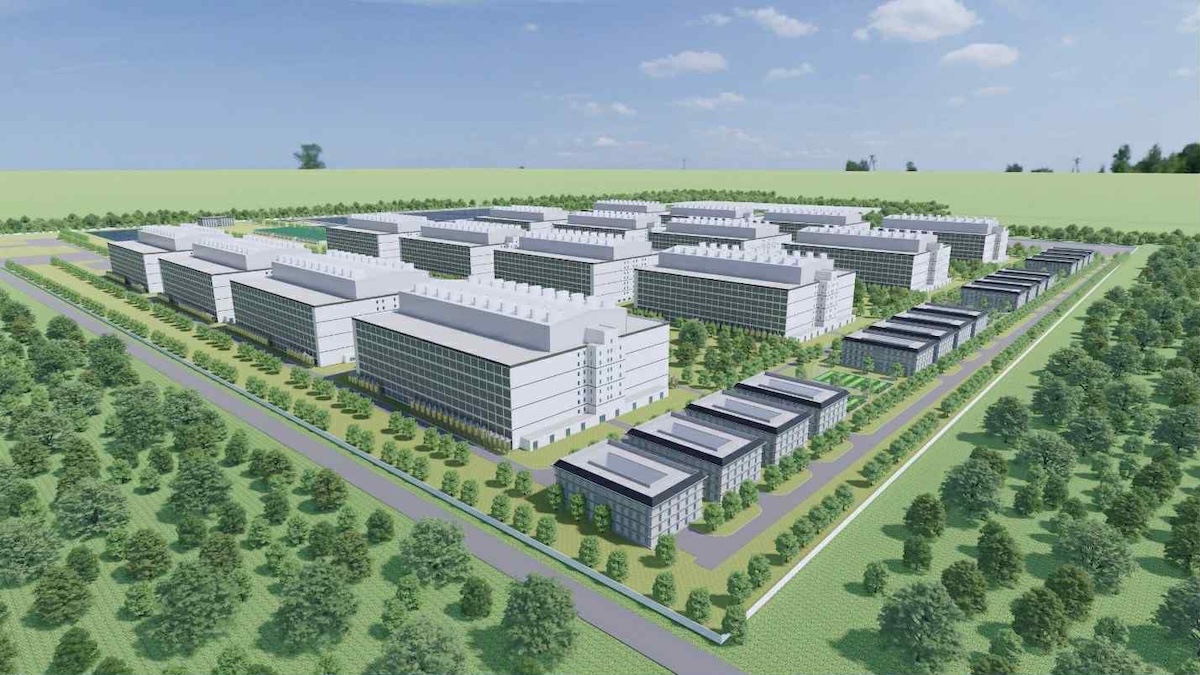Minister Phung Duc Tien submitted the proposal to the prime minister.
According to the ministry, this centralized, multi-story model offers significant advantages over traditional pig farming. It utilizes technologies like artificial intelligence (AI) and blockchain. Automated processes, sensor monitoring, and image and sound capture of individual pigs allow for early disease detection.
Feed is automatically controlled based on each pig's needs, optimizing costs. A 4-layer filtration system also treats 95% of airborne odors. Air released into the environment is disinfected to prevent diseases like African swine fever, reproductive disorders, and acute diarrhea.
Raising pigs indoors also saves land, reducing land clearance time by 4.3 times. Labor costs are also lower, with one person able to monitor 2,000 pigs.
 |
Artist's impression of the smart pig farm. Photo: BAF |
Artist's impression of the smart pig farm. Photo: BAF
BAF Vietnam Agriculture Joint Stock Company and Xuan Thien Thanh Hoa Joint Stock Company proposed the project for Tay Ninh province. It involves 64,000 sows, producing 1.6 million market pigs annually, with a total estimated investment of over 12 trillion Vietnamese dong. The project is expected to generate annual revenue of 12-13 trillion dong, with a payback period of 5 to 5.5 years.
China is a leader in multi-story pig farming, having started in 2018. They now have over 2,000 such farms, housing approximately 2.65 million breeding sows and over 30 million market pigs.
African swine fever has been a significant challenge in Vietnam this year. 636 outbreaks have occurred in 30 out of 34 provinces and cities, affecting over 42,300 pigs, leading to the culling of over 43,300. 256 outbreaks in 26 provinces and cities are still within the 21-day monitoring period.
Deputy Minister Phung Duc Tien identifies the prevalence of small-scale farming (over 50%) as a key factor contributing to the difficulty in controlling outbreaks. He suggests that long-term solutions require a shift towards large-scale, centralized pig farms.
Pig farming is a key sector in Vietnam, accounting for 62-65% of total livestock production. In 2024, nearly 5.2 million tons of live pigs were produced, representing 4.3% of global pig production. Vietnam ranks 4th in global pork consumption, at over 37 kg per person per year.
Gia Chinh












